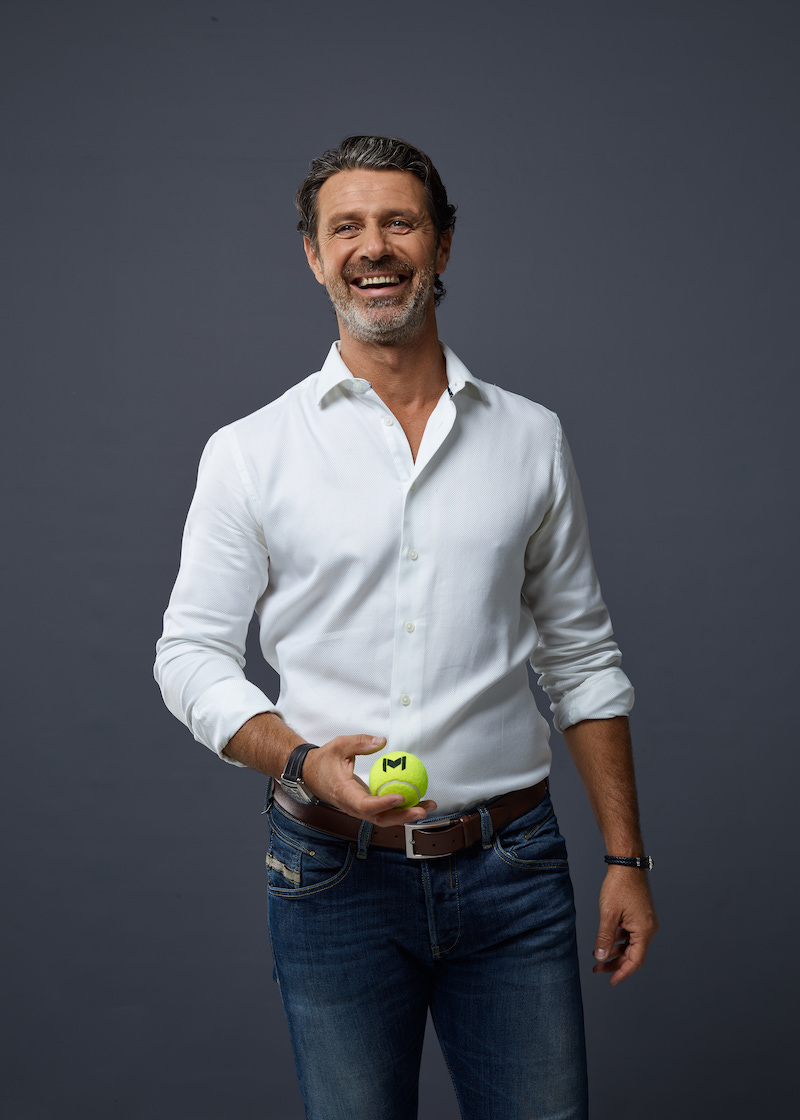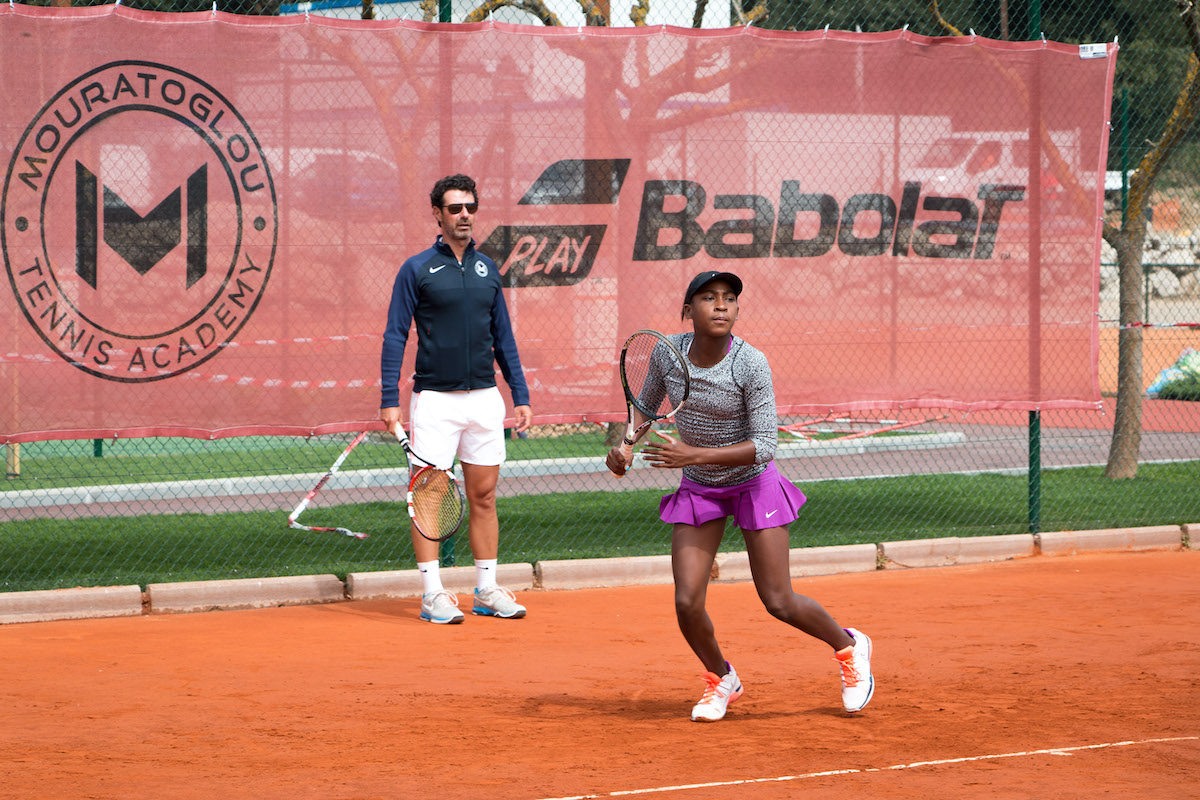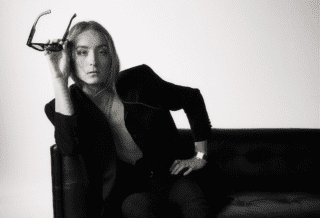This website uses cookies so that we can provide you with the best user experience possible. Cookie information is stored in your browser and performs functions such as recognising you when you return to our website and helping our team to understand which sections of the website you find most interesting and useful.
Changing the game: how ‘The Playbook’ star Patrick Mouratoglou is revolutionising tennis forever
By Michelle Johnson | 28 September 2020 | Sport
The world’s most influential tennis coach and founder of the Ultimate Tennis Showdown, Patrick Mouratoglou has trained World No. 1 Serena Williams and Coco Gauff to glory

The day after Serena Williams crashed out of the first round of Roland-Garros in 2012, she turned to French tennis coach Patrick Mouratoglou. At that time, Williams, now universally considered the greatest tennis player of all time, hadn’t won a major tournament in two years. Her goal was to win one last Grand Slam tournament before hanging up her racket.
Instead, under Mouratoglou’s coaching, Williams didn’t just return to triumphant form, she exceeded it, going on to win 10 more Grand Slams and two Olympic medals – so far. She still holds the Open Era record with 23 Grand Slam titles to her name and a 310-week reign as World No. 1.
If their partnership wasn’t enough to confirm Mouratoglou as the most influential tennis coach of his generation, then one only needs to look to his eponymous training academy in Nice, which has nurtured the talents of rising stars such as Stefanos Tsitsipas and 16-year-old powerhouse Cori “Coco” Gauff. The Mouratoglou Academy, established in 1996, not only offers full-time programmes to future tennis stars, but hosts training facilities for the likes of Novak Djokovic and Andy Murray.
“It’s such an honour for our campers to train next to the greats,” he says. “Watching them closely inspires, gives ideas, and brings motivation. This is one of the big assets that the Mouratoglou Academy provides and makes us unique.”
Not content merely to train tomorrow’s champions, this summer Mouratoglou launched the Ultimate Tennis Showdown – a fast-paced, virtually broadcast tennis tournament – that is revolutionising the sport by allowing shorter matches, more emotion, and new rules designed to shake up the game for a new generation of players and (virtual) spectators.
“Tennis is currently living off fans from the 1970s and 80s,” he says. “We hope that more entertainment and emotion in the UTS league will appeal to younger fans and give spectators a modern and digital experience. We can’t expect extremely long matches to bring young people on board – the idea with UTS is to propose a different concept.”
Here, Mouratoglou – who also stars in new Netflix series The Playbook, reflects on the progress of UTS and what it takes to make a champion.
Patrick, congratulations on the success of Ultimate Tennis Showdown. How does it differ from traditional tournaments?
Thank you. We were so excited to launch UTS and the initial response has been incredible. We had a fantastic line-up of players for UTS1, including Dominic Thiem, Stefanos Tsitsipas, David Goffin and Matteo Berrettini, who became the first ever UTS champion. The whole idea was to condense the tennis match into an hour, so it’s a very intense and immersive experience; the camera is close enough that you feel like you are next to the players and there’s interaction at every changeover. Fans experience a lot of entertainment, as players are able to express their emotions more freely thanks to our light code of conduct, and we created new rules – including four 10-minute quarters, two serve points and a sudden-death tie break – to shake up the traditional game and keep fans on their toes. >>
Swiss performance running brand On teams up with Roger Federer to release ultra-limited edition vegan tennis shoe through online raffle

You founded the Mouratoglou Academy in 1996. When did your love of tennis begin, and what inspired you to coach?
I started playing tennis at the age of four and never wanted anything else but to be a professional tennis player. I was one of the best tennis players for my age in France but, sadly, it wasn’t a career my parents wanted me to pursue. When tennis was taken away from me, I really lost my focus. I eventually decided to establish my tennis academy to help players become professionals. My coaching career began in 1996 when I was 26 and, by 2004, I was coaching Marcos Baghdatis. He became the Junior World No.1, and then a finalist of the 2006 Australian Open and member of the ATP Top 10. Now, the Mouratoglou Academy hosts 200 full-time students, 4,000 campers and is a training centre for pro-athletes including Serena Williams and the players we have nurtured, such as Stefanos Tsitsipas and Coco Gauff.
Since becoming Serena Williams’ coach in 2012, she has won 10 Grand Slam titles and two Olympic Gold medals. What does her success mean to you?
It means the world to me. Serena and I know how hard we have worked to achieve that. When I started coaching her, I was often asked how big an achievement it was to work with someone like her. I answered that it was a blessing but not an achievement. If I took the job, it was to help her do better than she ever did – to make history and beat records – and that I would only be satisfied if I felt I had been able to make a difference.
How integral to Grand Slam success is that relationship between a player and their coach?
The quality of the relationship between coach and player is the first key to success. It requires complete trust and communication. My job is to help players find the strength within themselves to achieve their potential. These goals can be achieved only if player and coach believe in one another 100%. Too many coaches jump straight to proposing solutions before establishing that winning relationship, and this never triggers good results. It’s also important to understand that a player is a complex machine that starts with the mind. Understanding how the whole machine – the whole person – operates is the first step to making the necessary adjustments to reach their next level.
What stood out to you when you first met Coco Gauff?
I met Coco when she was just 10 years old. I walked away thinking, ‘Wow, this girl is really special’. By 12, she was saying she wanted to be the greatest of all time. As a player she is remarkable, and she’ll go incredibly far in her career. She is very unique: her ambition is limitless, as is her belief in her abilities. She isn’t satisfied with her results – for her, it’s just a start and she is aiming much higher. She is also exceptional at dealing with pressure. Her personality is just as impressive. She has such a quiet confidence and self-assuredness that translates in her game. Now she’s 16, she’s proving herself to be more mature than even 25-year-old players in both her tennis skills and courage to speak out about matters that are important to her. >>
Formula E founder Alejandro Agag: “Covid-19 is a test run for when we need to act on climate change. That time is now.”

What was going through your mind when you watched Coco defeat Venus Williams at Wimbledon in 2019?
I had a lot of mixed feelings. First of all, I love Venus and hate to see her lose. At the same time, I wanted Coco to win so much – I root for her in any situation. Then I was seeing my little Coco work wonders. To see her beat Venus at Wimbledon, at just 15 years of age, it was the realisation of all the potential I had seen in her when she was 10. It was so special to me. It will definitely stay in my top 10 best tennis moments of all time.
How would you describe your professional coaching style?
I hope my players would describe me as a dedicated, resilient coach with an eye for innovation. I think it’s really important to have a great fit with a player; you give everything for him or her, you have to be their greatest supporter, and think day and night about winning. That’s your job when you’re a tennis coach –to make them win more than ever before. It takes devotion.
How does the Academy tie in with your Champ’seed Foundation?
The Champ’seed Foundation was established to help young tennis talent without the financial means to reach the highest levels of international tennis. Sadly, money is so often a roadblock to people fulfilling their potential and, seeing this first hand as a coach, I felt compelled to do something to give promising players a real chance to have a career. Coco Gauff has been supported by the Champ’seed Foundation and is the perfect example of an incredible player being given the financial support to live out the career she was born for.
What qualities do you look for in a champion player?
Champions think differently. They have an all-consuming hunger to succeed, are determined and hold themselves to the highest standards at all times. For me, the greatest talent is hard work. I look for players who have this commitment and ambition, players who are considering their next opponent as soon as they’ve won a match because they’re never satisfied. In young students, I look for character rather than technique. Real talent is the ability to work to reach one’s goals. It lies in the personality, determination, drive and will. Real talent is competitiveness.







